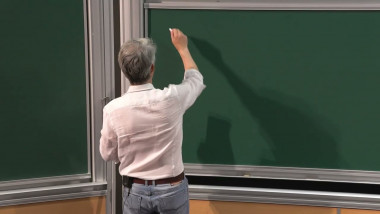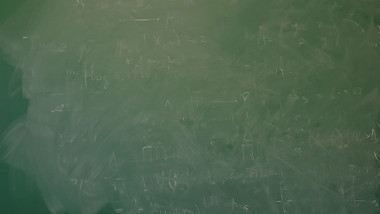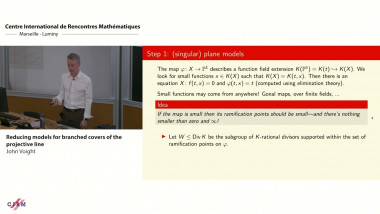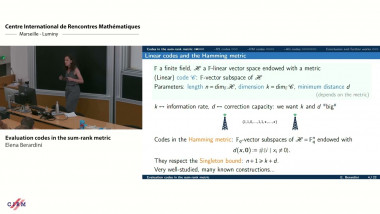Apparaît dans la collection : 2016 - T1 - WS5 - Secrecy and privacy theme
Private information retrieval protocols allow a user to retrieve a data item from a database without revealing any information about the identity of the item being retrieved. Specifically, in information-theoretic k-server PIR, the database is replicated among k non-communicating servers, and each server learns nothing about the item retrieved by the user. The effectiveness of PIR protocols is usually measured in terms of their communication complexity, which is the total number of bits exchanged between the user and the servers. However, another important cost parameter is the storage overhead, which is the ratio between the total number of bits stored on all the servers and the number of bits in the database. Since single-server information-theoretic PIR is impossible, the storage overhead of all existing PIR protocols is at least 2 (or k, in the case of k-server PIR). In this work, we show that information-theoretic PIR can be achieved with storage overhead arbitrarily close to the optimal value of 1, without sacrificing the communication complexity. Specifically, we prove that all known k-server PIR protocols can be efficiently emulated, while preserving both privacy and communication complexity but significantly reducing the storage overhead. To this end, we distribute the n bits of the database among s+r servers, each storing n/s coded bits (rather than replicas). Notably, our coding scheme remains the same, regardless of the specific k-server PIR protocol being emulated. For every fixed k, the resulting storage overhead (s+r)/s approaches 1 as s grows; explicitly we have r≤ks√(1+o(1)). Moreover, in the special case k=2, the storage overhead is only 1+1s. In order to achieve these results, we introduce and study a new kind of binary linear codes, called here k-server PIR codes. We then show how such codes can be constructed from Steiner systems, from one-step majority-logic decodable codes, from constant-weight codes, and from certain locally recoverable codes. We also establish several bounds on the parameters of k-server PIR codes, and tabulate the results for all s≤32 and k≤16. [Based on joint work with Arman Fazeli, Sankeerth Rao, and Eitan Yaakobi]
















